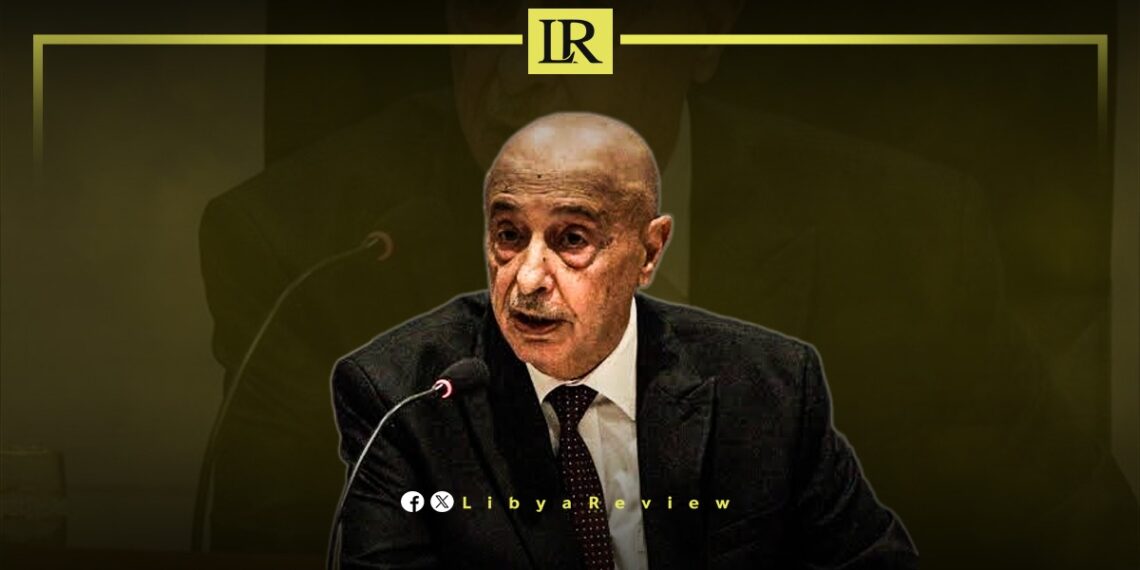The Speaker of the Libyan House of Representatives, Ageela Saleh, reaffirmed that the House of Representatives is the sole legislative authority in the country during the transitional phase, citing Paragraph 10 of the governing principles of the political agreement.
In a recent press statement, Saleh emphasised that the House of Representatives, elected in June 2014, holds legislative power, which includes granting confidence to the Government of National Accord and approving the budget submitted by the government.
Saleh further stated, “The explicit texts do not mention any participation of the State Council in issuing the budget law. In most parliamentary systems, it is the House of Representatives that is responsible for approving the budget, without interference from other councils.”
He highlighted that since 2015, the State Council has not been involved in preparing, discussing, or approving the budget. Saleh criticized the claims made by the Chairman of the State Council, asserting that they lack any legal basis. He added that the political agreement is outdated and needs revision.
Saleh challenged the Chairman of the State Council to present a single legal provision granting his council the authority to approve the general budget. He expressed his astonishment at the attempts of an unelected body to monitor and hinder the activities of an elected body.
On Monday, the High Council of State (HCS) voted to reject the general budget approved by the House of Representatives (HoR) last Wednesday. According to Saad bin Sharada, a member of the HCS, 63 out of 75 members present voted against the budget.
The High Council of State claimed the HoR’s approval violated the political agreement, highlighting procedural and substantive breaches, particularly the failure to consult the SCS and the violation of the political agreement and the constitutional declaration.
Bin Sharada criticized the budget for exacerbating political divisions in Libya, noting it accommodates two separate budgets for two different governments.
In response to the HoR’s budget approval, Fathallah Al-Sariri, another HCS member, revealed three significant steps the High Council of State intends to take: filing a judicial appeal against the budget, initiating a process to form a unified, smaller government, and appointing officials to sovereign positions.
The dispute over the budget reflects deeper political fractures in Libya, which has been divided between rival administrations in the east and west since the fall of Muammar Gaddafi in 2011. The HCS’s rejection underscores the ongoing struggle for political consensus and the challenges in creating a unified national government.


